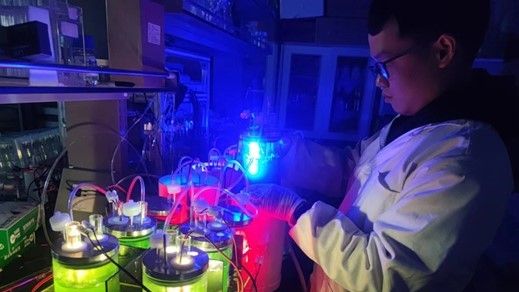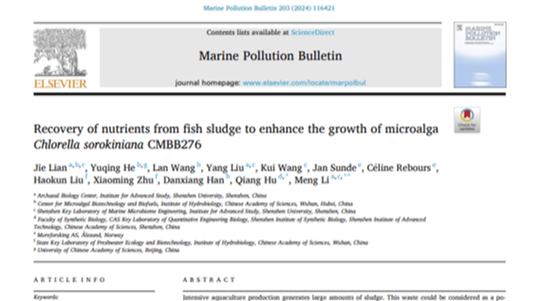News

Smart Light Strategies Boost Microalgae Efficiency in Aquaculture Wastewater Management
Aug 13, 2025A collaborative team from the SAFER-IMTA project—comprising researchers from the Institute of Hydrobiology at the Chinese Academy of Sciences, Shenzhen University and Møreforsking (Norway) — unveiled a breakthrough in aquaculture wastewater management. Their recent study, published in the Journal of Environmental Management, reveals how targeted manipulation of light quality can significantly improve nutrient removal and biomass production in microalgae-based systems.
Read More
Transforming Fish Waste into Green Gold: A Breakthrough in Sustainable Aquaculture
May 24, 2024A team of scientists from Shenzhen University, the Institute of Hydrobiology, and Møreforsking has made a groundbreaking discovery in the world of sustainable aquaculture. Their research, published in the Marine Pollution Bulletin, unveils an innovative method to convert fish sludge into valuable nutrients for microalgae growth.
Read More
Optimizing Microalgae Growth in Aquaculture Effluent: Harnessing Innovative Light Sources for Sustainable Solutions
Dec 07, 2023Scientists from the Institute of Hydrobiology have conducted experiments using a novel surround-type light source in a fermenter photobioreactor. The aim was to investigate how microalgae could potentially utilize nutrients from aquaculture effluent waste for sustainable growth.
Read More
Training course on Seaweed Cultivation and Biotechnology
Oct 09, 2023Møreforsking contributed to the training course in Seaweed Cultivation and Biotechnology which was held at the National Institute of Marine Sciences and Technologies in Tunis from 12th to 16th September 2023.
Read More
SeaWheat Training School
Jul 20, 2023The SeaWheat COST Action organizes Training Schools related to the different working groups in the network. Recently, the second training school took place in Spain.
Read More
SAFER-IMTA presented at international conferences
Apr 27, 2023Earlier this year the final project meeting for the research project “Emerging species for sea cucumber aquaculture” was held in South Africa. This project is a bilateral research cooperation between South Africa and Norway in sustainable use of ocean resources (SANOCEAN), and has been investigating the potential for sea cucumber aquaculture development based on the local species in these two countries.
Read More